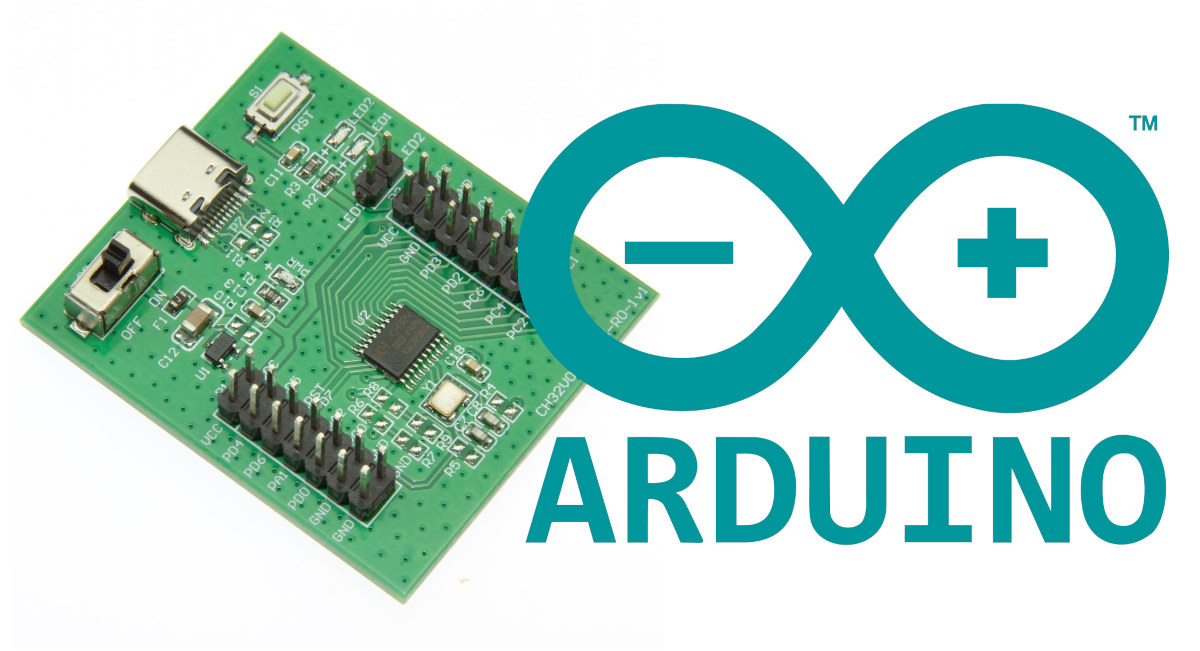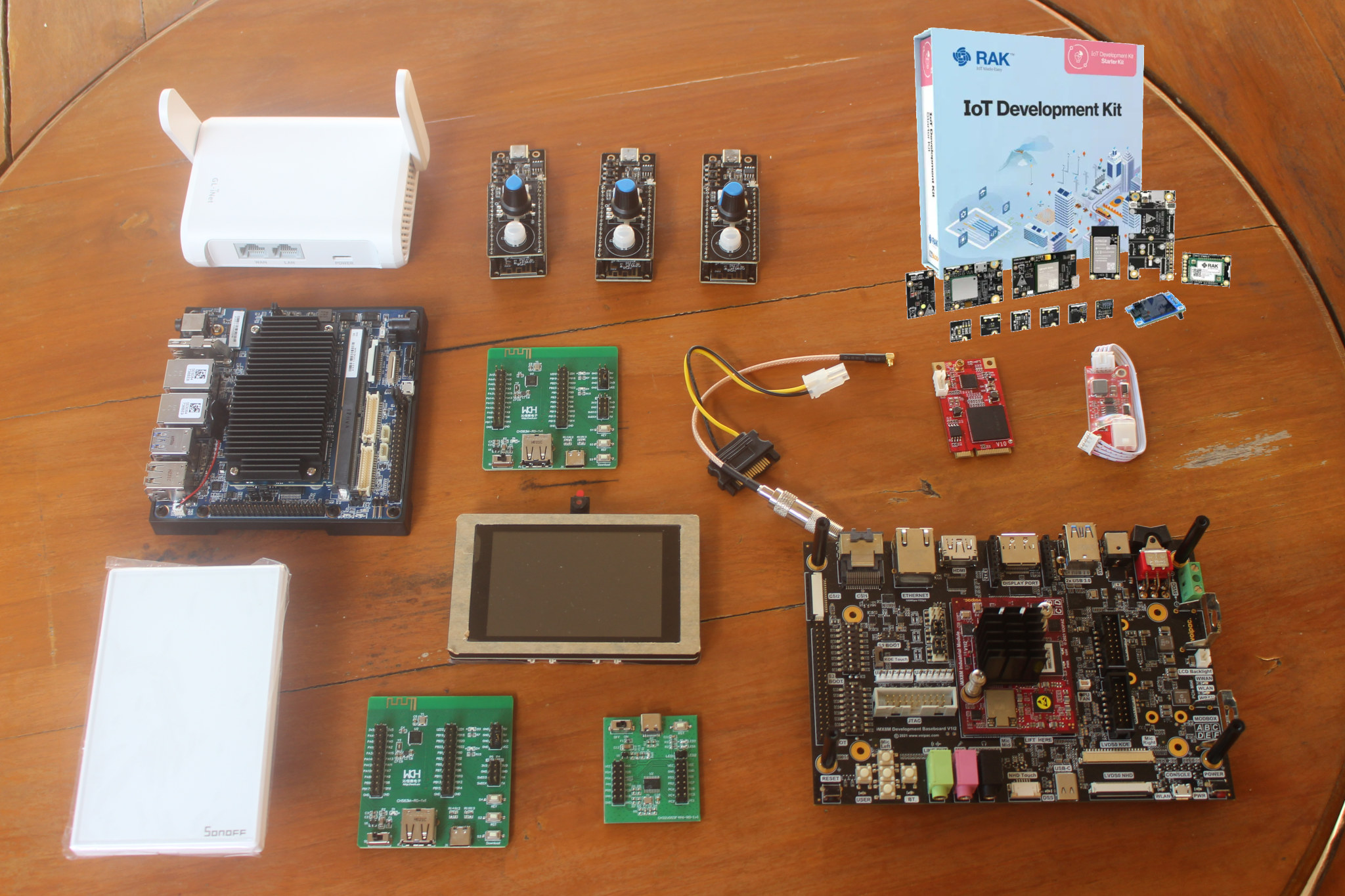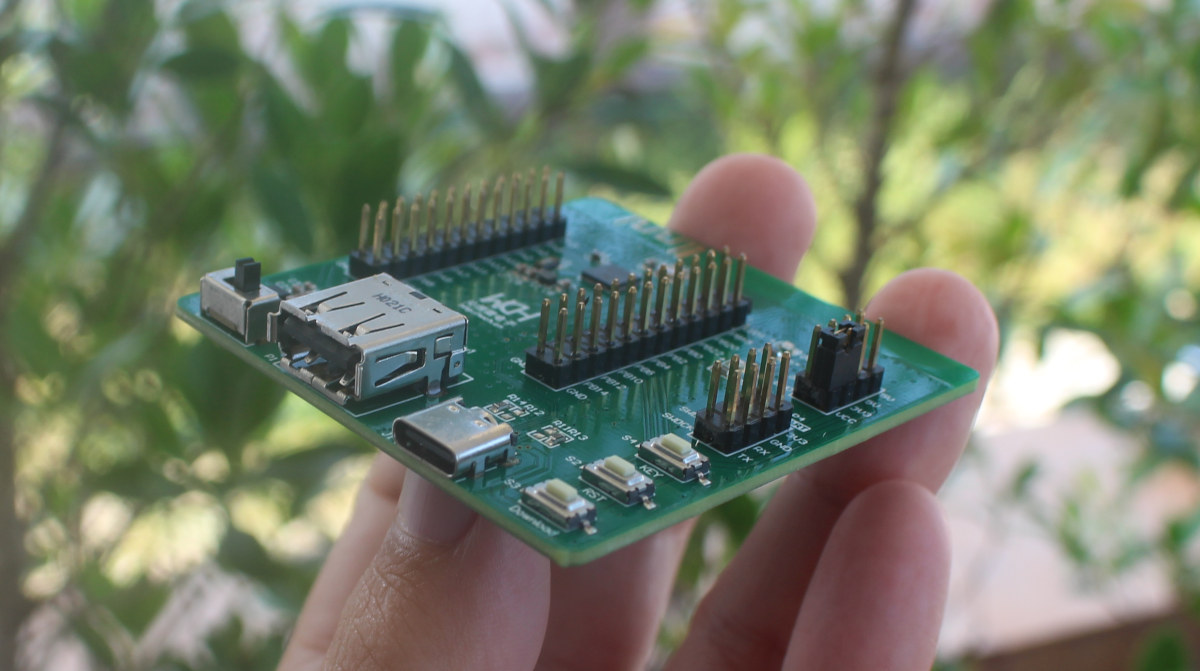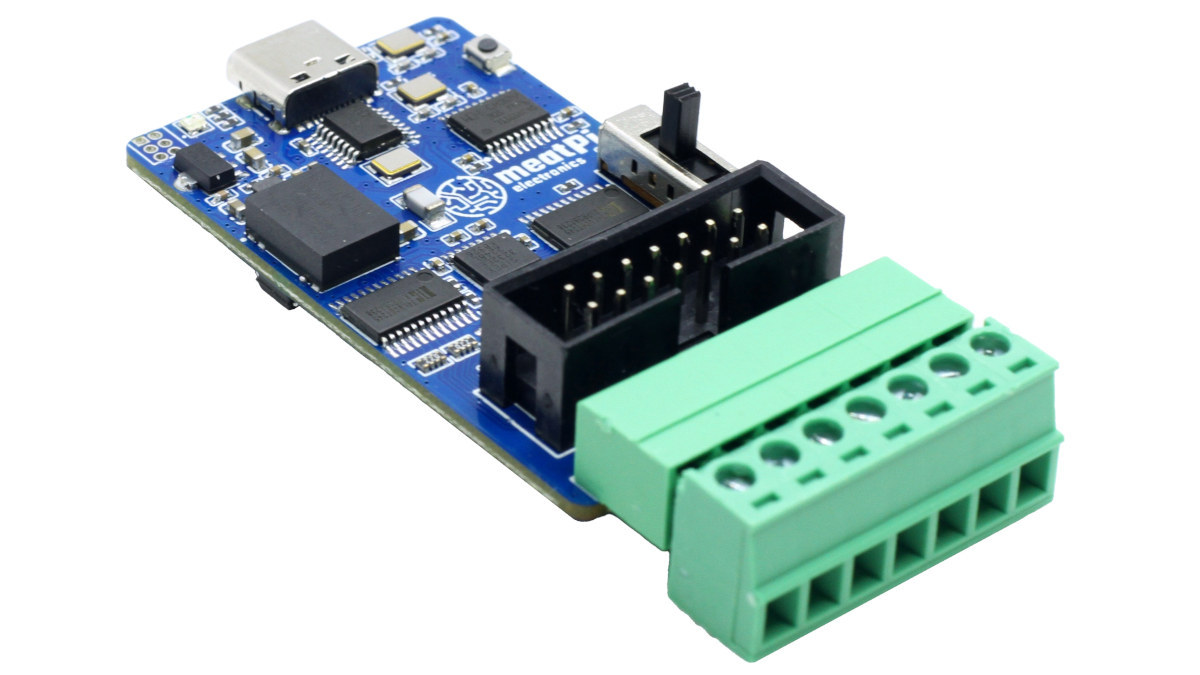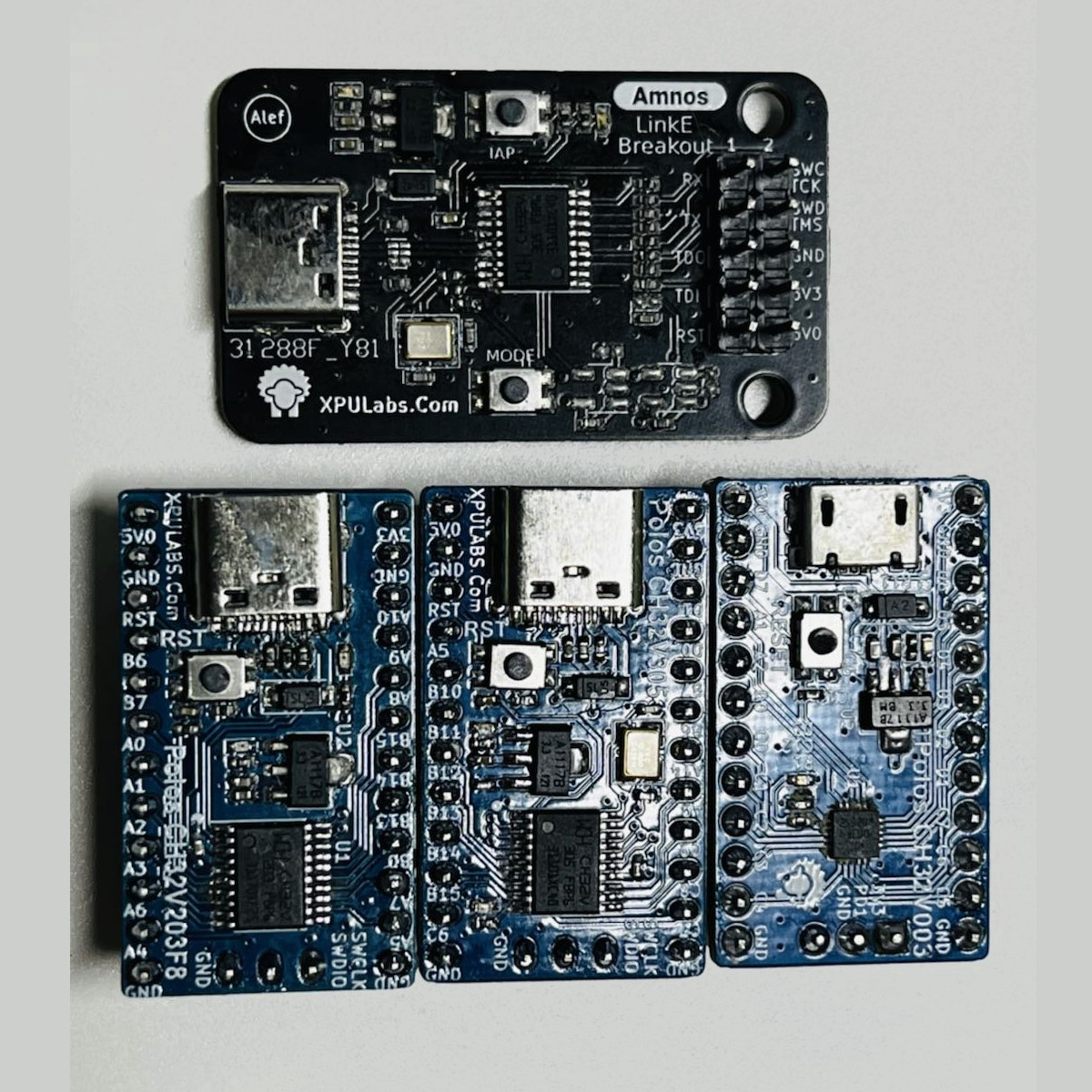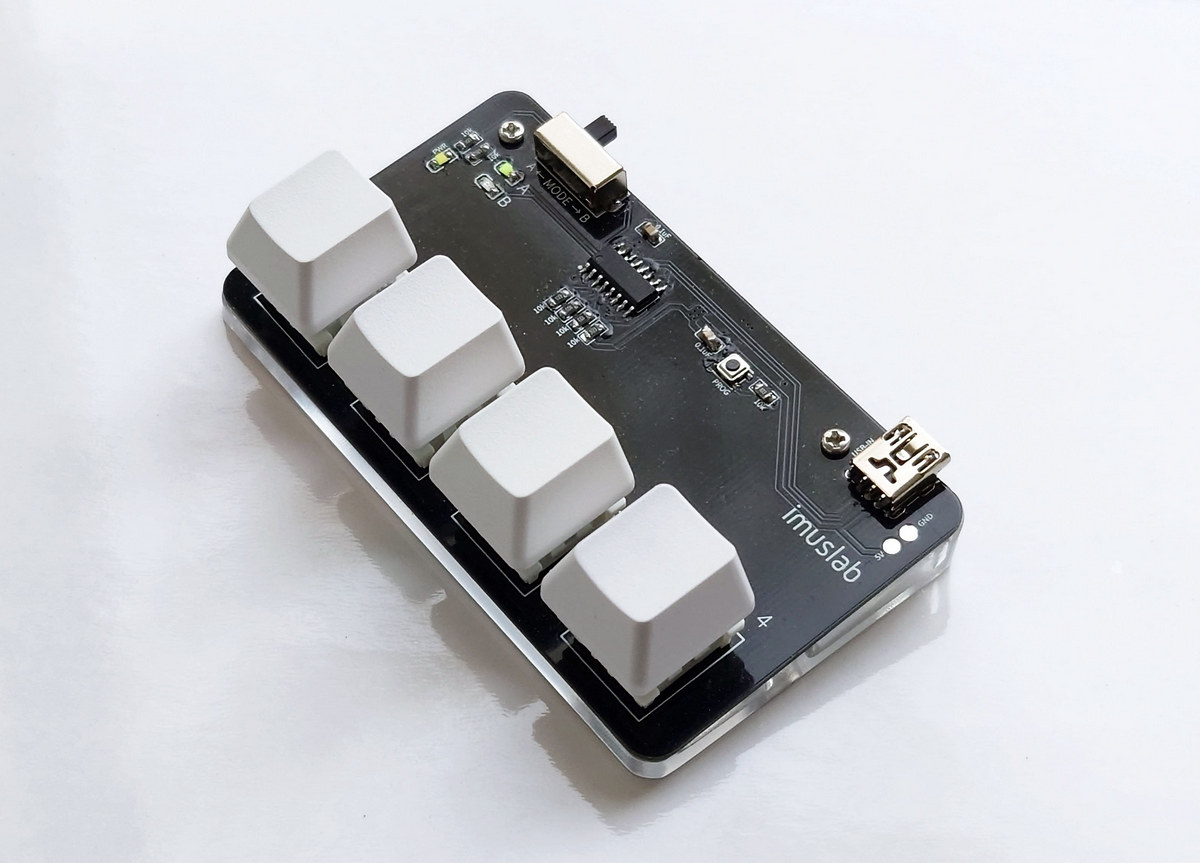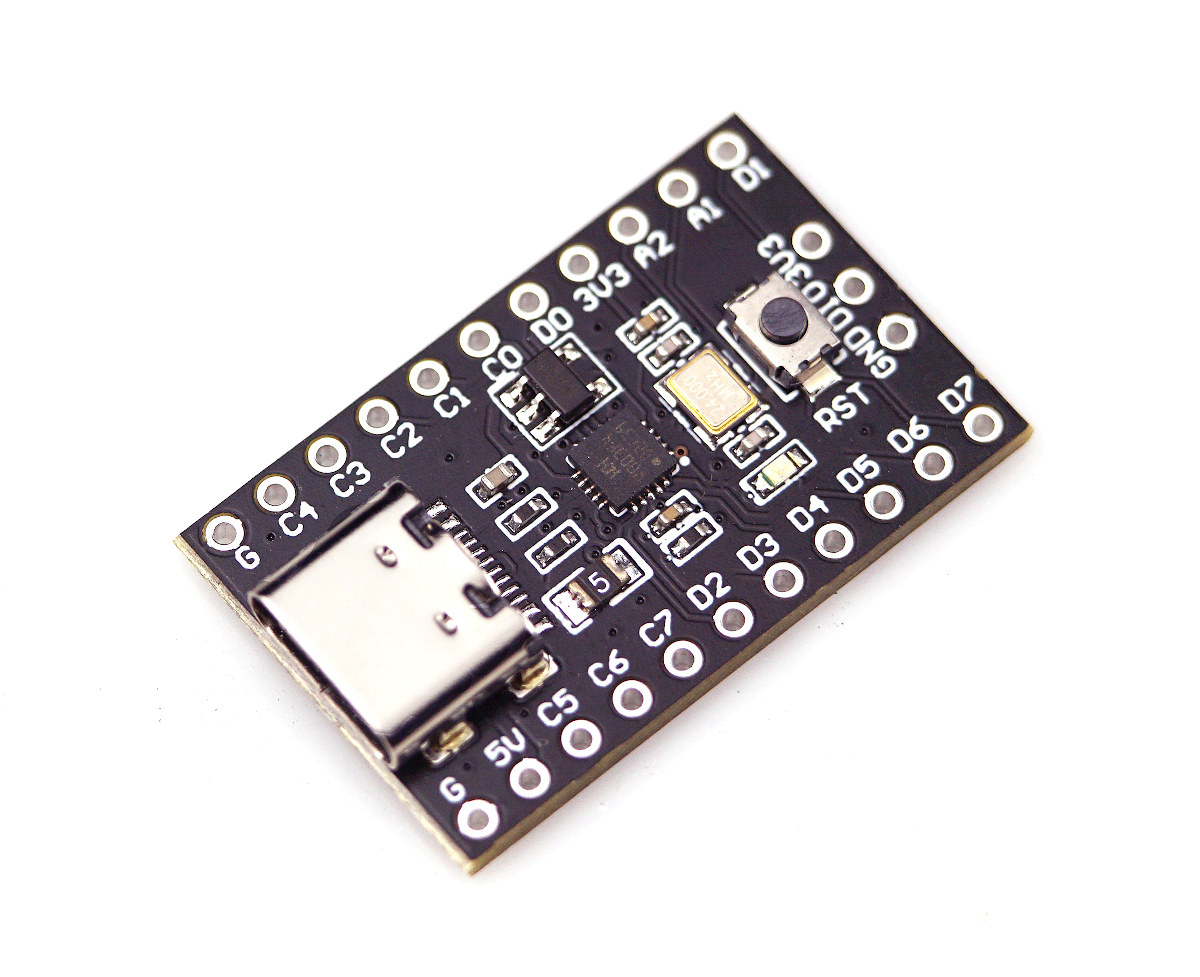The LoLRa project is a firmware-only LoRa transmission open-source project that works without a Semtech radio and instead relies on an I2S or SPI interface (so not exactly bit-banging) to transmit data with microcontrollers such as WCH CH32V003, or Espressif Systems ESP8266 and ESP32-S2 microcontrollers. LoRa is a proprietary protocol by Semtech, but people have been trying to reverse-engineer the LoRa PHY for years, and this culminated with a LoRa GNU Radio SDR implementation last year. But CNLohr found out you don’t even need a radio to send LoRa packets and you can instead use SPI or I2S interfaces from general-purpose microcontrollers to send packets that can be decoded by commercial off-the-shelf LoRa gateways and other chips. The current implementation is designed for the ITU Region 2 (aka The Americas) targeting the 902-928MHz frequency band, but the code could be changed for Region 1 (EU, Russia, Africa) to target 863-870MHz […]
WCH RISC-V microcontrollers can now be programmed with the Arduino IDE
WCH has launched some interesting RISC-V microcontrollers in the last year or so, including the “10 cents” CH32V003 RISC-V microcontroller with 2KB SRAM and 16KB flash or the CH32V307with more resources (up to 64KB SRAM and 256KB flash) and additional peripherals. So far they were programmable in C language using MounRiver IDE or an open-source toolchain, but WCH has now announced Arduino support for many of those RISC-V microcontrollers which should enable more people to get involved. The core library for CH32duino works with OpenOCD through WCH-LINKE hardware to download the firmware and debug WCH chips and a riscv-none-embed-gcc toolchain that supports custom RISC-V instructions (half-word and byte compression instruction extensions and hardware stack push/pop functions) found in WCH RISC-V microcontroller. The following evaluation kits are currently supported with ADC, DAC, USART, GPIO, EXTI, SysTick, I2C, and SPI peripherals: CH32V003F4P EVT board CH32V203G8U EVT board CH32X035G8U EVT board CH32V103R8T6_BLACK EVT […]
Giveaway Week 2023 winners announced!
CNX Software’s Giveaway Week 2023 is now over and we’re ready to announce the winners. We offered some of the review samples we tested (or not) in the last year, and like the last two years, we were also joined by RAKwireless who offered two IoT development kits. All items given away are shown in the photo below, minus some accessories, and if you count more than seven you’d be right, as some are kits with multiple items like the GL.iNet GL-S200 Thread Border router which comes with three development boards, and more importantly, we also organized Giveaway Week on CNX Software Thailand for the second year running. We had seven winners on CNX Software: VOIPAC iMX8M industrial development kit – Kraingsak, Thailand TBS7901 mini PCIe DVB-S2X/S2 module – Frank, Singapore RAKWireless WisBlock IoT Starter Kit – Andy, Russia GL.iNet GL-S200 Thread Border router kit – Augustin, Argentina WCH CH583M-R0-1v1 […]
Giveaway Week 2023 – WCH CH583M-R0 development board and some RISC-V microcontrollers
Early this year, WCH sent me a few of their RISC-V MCU boards and chips to thank me for writing about their products. I gave one for review with some chips but it went to review heaven, or in other words, no review was ever written. I also sold a couple locally, and since I don’t think I’ll ever have time for a review, we are now giving away the remaining boards and chips here and on CNX Software Thailand. Today’s giveaway is the WCH CH583M-R0-1v1 board, also known as CH583EVT or CH583M-EVT-R0, based on the CH583 RISC-V Bluetooth 5.3 LE microcontroller that exposes all I/Os from the chip, a few buttons, and USB ports, and also features an SWD/UART header for debugging. You’ll find the documentation, code samples, an Android app and other resources to get started on GitHub. I’ll also throw all the remaining chips I have left […]
Ollie v2 USB to UART/CAN/RS485/RS232 converter gets USB-C port, plastic enclosure, and more (Crowdfunding)
Ollie v2 is an improved version of the Ollie USB to isolated UART, CAN Bus, RS232, and RS485 converter that gains a USB-C port, a plastic case, the ability to set the voltage from the target board, and various other minor improvements. Like the first version, the Ollie v2 is a portable tool designed for hackers and field engineers that allows them to work with a single device instead of a bunch of USB converters, each handling a single protocol, and isolation makes sure the host, such as a laptop, is protected from high voltages. Ollie V2 specifications: Serial chip – WCH CH344 quad-serial port chip (instead of XR21V1414 in the first design) Host interface – USB Type-C port Isolated interfaces (all with ESD protection) 2x UART ports up to 6 Mbps with 1.8/3.3/5 V or target voltage levels (set by slide switch) CAN 2.0A/B up to 1 Mbps bus […]
Polos CH32Vxx 32-bit RISC-V MCU boards starts at $1.99
XPU Labs, a subsidiary of AnalogLamb, has designed three inexpensive “Polos” development boards based on WCH CH32VXX RISC-V microcontrollers with pricing starting at just $1.99. The three development/breakout boards have the same form factor and only differ in the specific RISC-V MCU used with three parts selected: the 48 MHz CH32V003F4U6 microcontroller, the 144 MHz CH32V203F8P6 MCU, and the CH32V305FBP6 that’s similar to the former but add more memory (32KB) and flash (128KB). You can see also three boards side-by-side in the photo below along with the Amnos LinkE CH32Vxx debugger & programmer board. Polos CH32V003 Breakout Alef specifications: MCU – WCH CH32V003F4U6 QingKe 32-bit RISC-V2A microcontroller up to 48MHz with 2KB SRAM, 16KB Flash (QFN20 Package) USB – 1x Micro USB port I/Os – 2x 12-pin headers with Up to 18 GPIOs with external interrupt support 1x USART, 1x I2C, 1x SPI 10-bit ADC Debugging – 1-wire serial debug […]
$10 Arduino-programmable WCH CH552 macro keyboard is configurable from a web browser
The 4xMacropad is a low-cost, open-source hardware 4-key mechanical macro keyboard based on WCH CH552G 8051-compatible USB microcontroller and whose keys can easily be configured from a web browser generating an Arduino sketch. The CH55x family has been around for several years, and we first wrote about the sub-$2 CH551 Mini development board over 5 years ago, but CH552 variants are also found in more recent hardware such as the Turing Screen Screen information display and another rotary encoder shield with two mechanical keys. The 4xMacropad macro keyboard is another CH522 design, but it’s open-source. 4xMacroPad specifications: MCU – WCH CH552G 8051-compatible microcontroller @ 24 MHz with 16KB flash, 1.25KB SRAM USB – 1x mini USB port for power User input – 4x mechanical key switches with keypads Misc – Power LED, Mode switch (A or B), user button Power Supply – 5V via mini USB port The EasyEDA files, […]
CH32V003 RISC-V MCU gets $1.5 development board, open source GCC toolchain and flasher utility
When we first wrote about the 10-cent CH32V003 RISC-V MCU it was offered in a $7 development board and the closed-source MounRiver Studio IDE had to be used for programming. But things have improved since October 2022, and now, you can buy a CH32V003 board for as little as $1.5 plus shipping, and an open-source GCC toolchain and flasher/downloader are now available. Let’s have a look at the hardware first with the low-cost nanoCH32V003 development board featuring a 48 MHz CH32V003 RISC-V microcontroller with 2KB SRAM and 16KB flash, a USB Type-C port for power, a reset button, and two rows of headers for the GPIOs. MuseLab nanoCH32V003 specifications: MCU – WCH CH32V003F4U6 32-bit RISC-V2A microcontroller up to 48 MHz with 2KB SRAM, 16KB flash (QFN20 package) Expansion – 2x 11-pin headers with up to 18x GPIOs, 1x USART, 1x I2C, 1x SPI, 8-channel 10-bit ADC, 5V, 3.3V, GND Debugging […]



